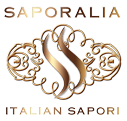The issue related to Italian-sounding products
As food experts, you already know that Italian-sounding products are an important issue for those who deal with real Made in Italy. Italian sounding refers to the improper use of names and images of Italy to deceive consumers into buying products that are not truly Italian.
A recent survey conducted by Assocamerestero on Italian-sounding food products revealed that Italian sounding has a significant impact on the global economy, with a turnover of 90 billion euros globally. This value has grown by 70% in the last ten years and is equal to three times the turnover of Italian exports in the food sector.
It is important to note that the choice of Italian sounding is not always related to cost or price. In some markets and for some products, the lack of knowledge about the features and quality of authentic Italian products leads consumers to choose Italian sounding instead.
How to recognize Italian-sounding products
You might have noticed that some products in your local grocery store or online marketplaces claim to be “Italian-sounding.” Here are some tips on how to recognize true Italian products and distinguish them from “Italian-sounding” ones.
- Look for the “Made in Italy” label Authentic Italian products will always have a “Made in Italy” label on the packaging, which indicates that the product was manufactured in Italy. If you don’t see this label on the product, it’s likely not an authentic Italian product.
- Check the ingredients list Authentic Italian products are made with high-quality ingredients that are specific to the region where they’re made. For example, Parmigiano-Reggiano cheese can only be made in the Emilia-Romagna region of Italy using specific ingredients and production methods. If the product’s ingredients list doesn’t match up with what you’d expect from an authentic Italian product, it may be “Italian-sounding.”
- Research the brand and manufacturer Before you buy a product, do some research on the brand and manufacturer. Check if they have any history or connections to Italy, and if their products are actually made in Italy. If the company has a website, see if they have any information about their production methods or sourcing of ingredients.
- Be wary of overly “Italian” branding While some “Italian-sounding” products have subtle nods to Italian culture, others may have overly “Italian” branding that feels like it’s trying too hard to be Italian. Look out for products with stereotypical Italian imagery, like gondolas, the Colosseum, or the Leaning Tower of Pisa, as these may be more about marketing than authenticity.
- Consider the price Authentic Italian products are often more expensive than “Italian-sounding” products, as they’re made with high-quality ingredients and follow strict production methods. If a product claiming to be Italian is significantly cheaper than other Italian products, it may not be authentic.
Always chose trustable suppliers
Saporalia is a brand that always stays true to its origins. We offer you, and your Customers, only the highest-quality Italian gourmet. Our products are made by small artisans all over our beautiful Peninsula and we are proud of our mission to spread the delicacies of our culture globally. We encourage you to support the True Italian Taste and choose authentic Made in Italy products. By doing so, you will not only enjoy the genuine flavors of Italy but also contribute to supporting the Italian food industry.
Get in touch to know more about our products and how our service can be an added value to your business.

